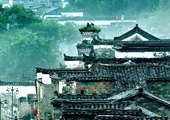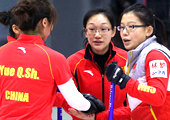Galloping Horse has signed a number of senior Chinese filmmakers, such as Zhang Yimou's frequent scriptwriter Liu Heng and veteran director/producer Zhang Yibai.
"Galloping Horse's assets will enable us in so many ways to access to the Chinese market," says Ulbrich.
China is widely seen to be emerging as the largest film market, with its box office growing at an annual rate of 30 percent since 2003, reaching 13 billion yuan ($2 billion) in 2011. The number of screens is expected to grow to 12,000 this year.
But the industry has suffered from the absence of a good local visual-effects company, says Ivy Zhong.
"For a long time, our filmmakers have had to find overseas special effects companies if they want to make real blockbusters," she says, adding that the joint venture with Digital Domain is a game-changer.
Galloping Horse will have the best visual artists at Digital Domain to train local talents, including some from local studios it plans to purchase. "There are many people who are smart enough in China, they will grow fast," Zhong says.
What worries her: How to transform local filmmakers' philosophy of production. While Hollywood blockbusters usually will spend 30 percent of the budget on visual effects, not all local directors want to spend that much.
"It takes time for local filmmakers to change their mind," says Zhong. "But with the combination of the world's best visual effect technology and the cost of local talents, we are very optimistic."
【1】 【2】
Recommendations:
News we recommend





























 Landmark building should respect the public's feeling
Landmark building should respect the public's feeling


![]()
